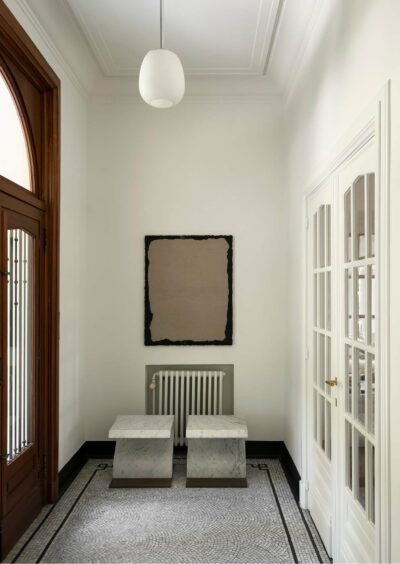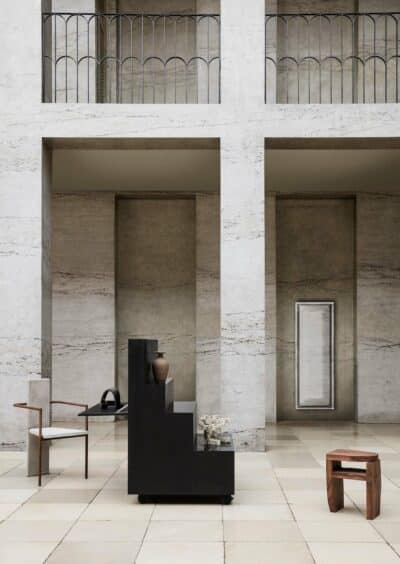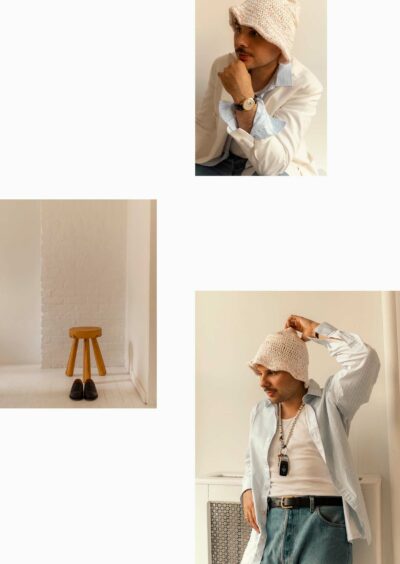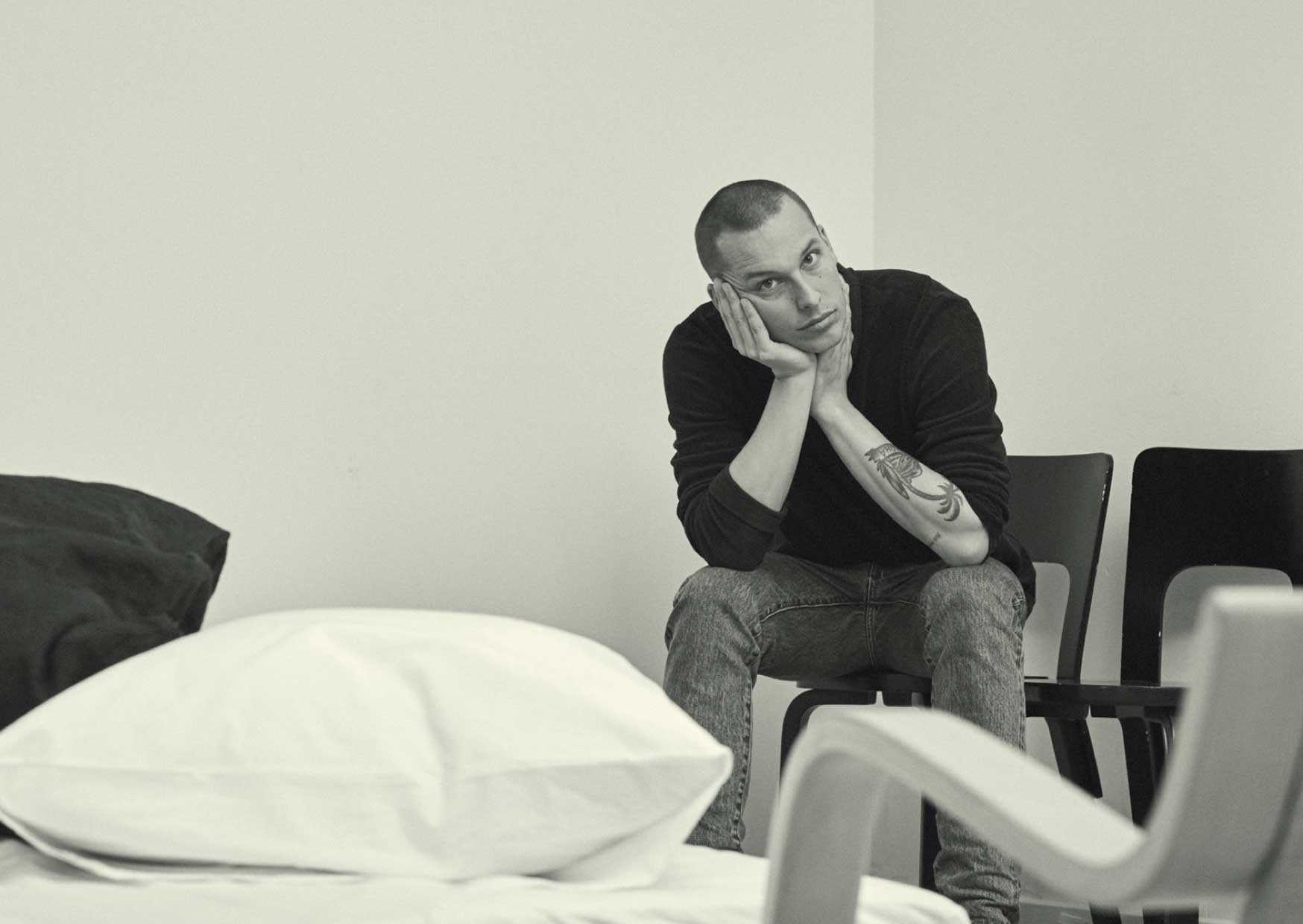
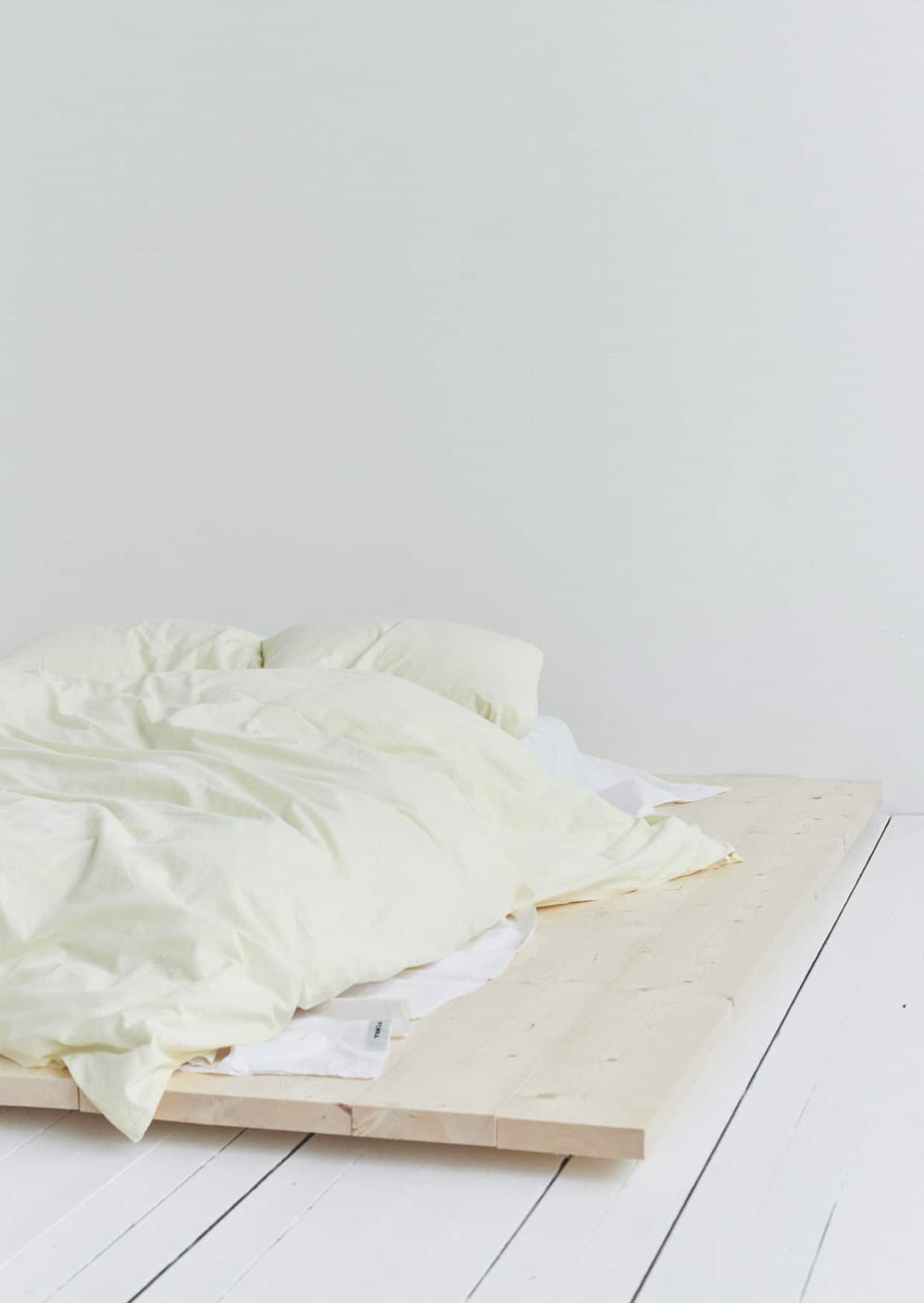
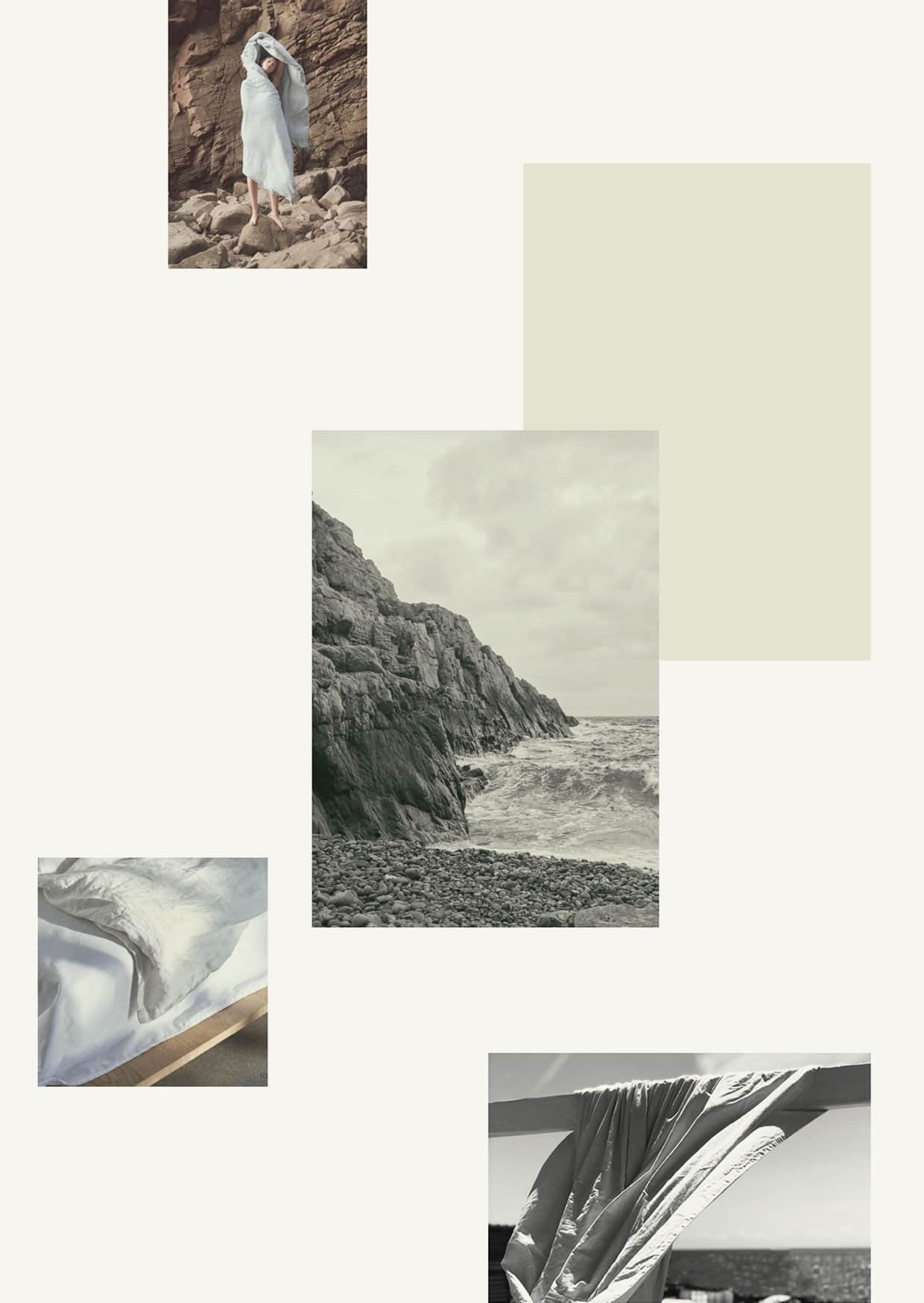
the touch of things
portrait
The single most important characteristic of a sheet is how it feels, says Charlie Hedin who founded a bed linen company based on his experiences as a sailor.
I spent my youth sailing in the Swedish archipelago and had a part-time job as a sail maker as a teenager, so I know the importance of textile quality. It keeps you warm, dry, comfortable, safe. When I founded Tekla Fabrics, I felt bed linen was lacking that quality and functionality intersecting with aesthetics. As textiles are something we wear and keep so close to the body, I look at their qualities with scrutiny. The feel of things is something I spend the most time pondering.
Bed sheets need to be both crispy and soft. And they need to keep their crispiness even after being washed a hundred times. They can’t be reliant on ironing, because who bothers ironing their linen today?
We work with a cotton percale that would usually be incredibly stiff but we stonewash it so it mellows and becomes soft to the touch – something not quite high street, not too ‘Italian’ luxury.
Beach towels are another challenge. Ours are 600 GSM terry, insanely thickly woven with long loops for greater absorbency, because they need to work as a towel at home, but also be dragged to the beach, to sleep on in the sun. It’s the right quality for the right function. Everything in its place.
I feel that our campaigns transfer that quality into a state of mind. Maybe a girl on the cliffs of Kullen in Sweden swirled in bed linen isn’t the most obvious connection, but it’s a feel. It’s dreamy and playful. It’s what home textiles should be all about. You don’t change your sofa or bed every day, but textiles enable an immediate transformation.
Last year, as a kind of incarnation of this dreamy fantasy, my friend André Saraiva and I came up with Petit Miramar. André hails from Portugal, where we found a little beach restaurant with three rooms out the back. Basically, it’s a restaurant you can live in. A chef, Jojo, makes all the food, which is organic and from the sea outside. All the neighbours are fishermen and they pull the boats up on the beach and clean the fish right there. People come to surf, to unwind. It’s very spartan, all basics, no fluff. If the hot water in the shower doesn’t work, you just have to go out and swim in the ocean.
This story was featured in The Paper, published by Ark Journal during 3daysofdesign 2019, as part of the Hotel Charlottenborg design exhibition.
AS TOLD TO ALISA LARSEN
PHOTOgraphy Philip Messmann / TEKLA
TAILORED INTERIOR
In the small Belgian village of Itegem, interior architect Peter Ivens discovered a unique and exotic villa with well-preserved 1920’s details reminiscent of a classical British colonial style – a central stairway, symmetrical plan, alcove windows, hipped roof and upper dormer windows.
CASE STUDY
— MONUMENTAL MONOCHROME
The enduring aesthetic of Danish furniture has always been entirely in step with other contemporary design practices, ceramics, glass, textiles, and particularly architecture.
LANDON METZ
Space is important to Landon Metz. In his art, pools of colour float across canvas leaving vast areas of unprimed fabric. In his studio the same sense of space – and the importance of the negative – is evident in the blanks between sparsely scattered furniture and plants.

the touch of things
portrait
The single most important characteristic of a sheet is how it feels, says Charlie Hedin who founded a bed linen company based on his experiences as a sailor.
I spent my youth sailing in the Swedish archipelago and had a part-time job as a sail maker as a teenager, so I know the importance of textile quality. It keeps you warm, dry, comfortable, safe. When I founded Tekla Fabrics, I felt bed linen was lacking that quality and functionality intersecting with aesthetics. As textiles are something we wear and keep so close to the body, I look at their qualities with scrutiny. The feel of things is something I spend the most time pondering.
Bed sheets need to be both crispy and soft. And they need to keep their crispiness even after being washed a hundred times. They can’t be reliant on ironing, because who bothers ironing their linen today?
We work with a cotton percale that would usually be incredibly stiff but we stonewash it so it mellows and becomes soft to the touch – something not quite high street, not too ‘Italian’ luxury.
Beach towels are another challenge. Ours are 600 GSM terry, insanely thickly woven with long loops for greater absorbency, because they need to work as a towel at home, but also be dragged to the beach, to sleep on in the sun. It’s the right quality for the right function. Everything in its place.
I feel that our campaigns transfer that quality into a state of mind. Maybe a girl on the cliffs of Kullen in Sweden swirled in bed linen isn’t the most obvious connection, but it’s a feel. It’s dreamy and playful. It’s what home textiles should be all about. You don’t change your sofa or bed every day, but textiles enable an immediate transformation.
Last year, as a kind of incarnation of this dreamy fantasy, my friend André Saraiva and I came up with Petit Miramar. André hails from Portugal, where we found a little beach restaurant with three rooms out the back. Basically, it’s a restaurant you can live in. A chef, Jojo, makes all the food, which is organic and from the sea outside. All the neighbours are fishermen and they pull the boats up on the beach and clean the fish right there. People come to surf, to unwind. It’s very spartan, all basics, no fluff. If the hot water in the shower doesn’t work, you just have to go out and swim in the ocean.
This story was featured in The Paper, published by Ark Journal during 3daysofdesign 2019, as part of the Hotel Charlottenborg design exhibition.
AS TOLD TO ALISA LARSEN
PHOTOgraphy Philip Messmann / TEKLA


